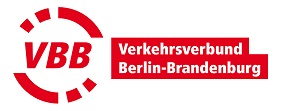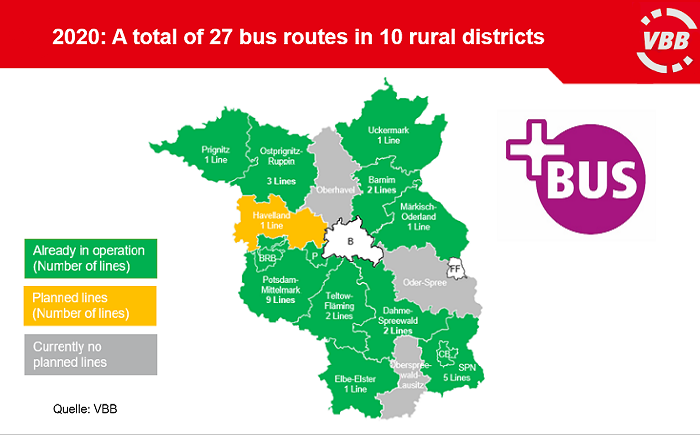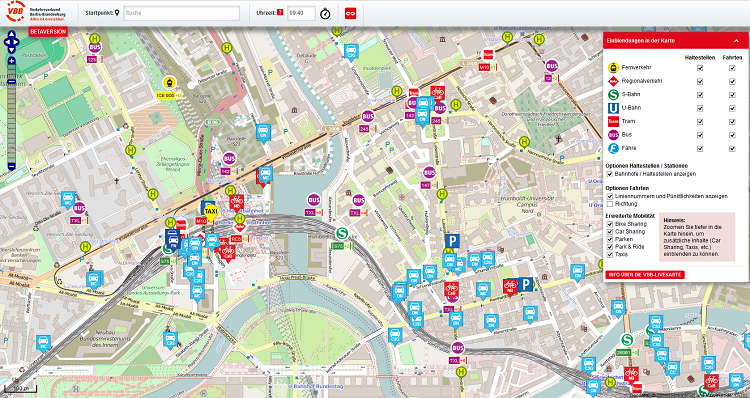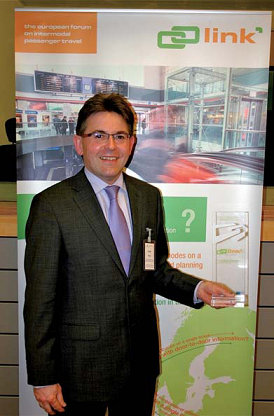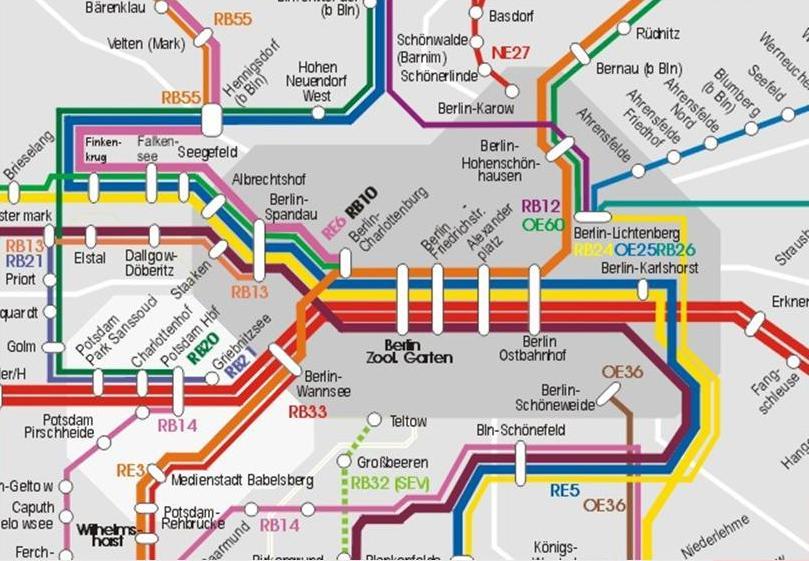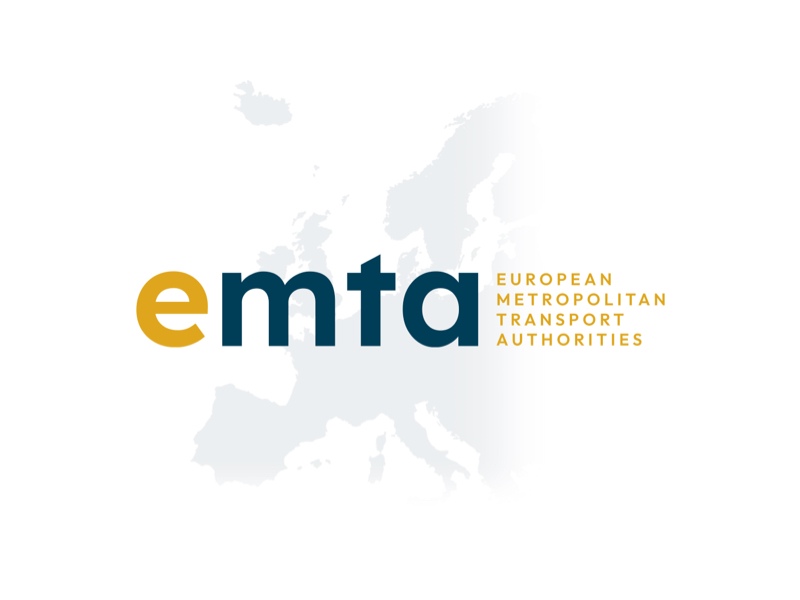Berlin
Are you a registered member of EMTA? Log-in to access contact details.
Basic information
Name of the public transport authority: VBB (Public Transport Authority for Berlin and Brandenburg)
Name of the PTA in local language: VBB Verkehrsverbund Berlin-Brandenburg
Other public transport trademarks: BVG (The public transport operator responsible for buses, trams and U-Bahn)
Geographical area: The German capital region: the states of Berlin and Brandenburg, 14 counties/districts of Brandenburg, and 4 towns with district status.
Inhabitants in the PTA area: 6.4 million
Responsibilities
Ticketing: VBB is responsible for the introduction and development of the common fare system, the distribution of fares among the roughly 40 transport operators and the definition of overall ticketing sales standards. The PTA does not sell or inspect tickets itself – those tasks are performed by the transport operators.
Procurement: On behalf of the states of Berlin and Brandenburg, VBB is responsible for all tenders regarding regional rail and S-Bahn services. Underground, tram and bus services are directly awarded by the city to the BVG, Berlin’s biggest transport operator. BVG is owned by the city of Berlin. The 14 districts and 4 towns with district-status in Brandenburg are procuring their bus services themselves, and VBB assists with quality guides etc.
Rolling stock and depot ownership: As of now, rolling stock and depots are owned by the transport companies. Regarding the Berlin S-Bahn, as of 2024, there are plans to build a rolling stock pool owned by the city, but this is not yet certain.
Public transport planning: VBB is responsible for the planning of routes and timetables as well as the quality of service levels regarding regional train and S-Bahn services. VBB assists districts with the planning of bus lines in Brandenburg, especially premium bus lines called PlusBus and interregional services.
Development of mobility policy / Transport system planning: VBB develops and writes the sustainable urban mobility plan on behalf of the state of Brandenburg. VBB also assists and consults Berlin in this matter. VBB coordinates the infrastructure project i2030 with partners Deutsche Bahn and the states of Berlin and Brandenburg. The project plans the expansion and development of rail infrastructure in the metropolitan region in the next decades (www.i2030.de). VBB is currently developing their public transport concept 2040 for rail as well.
Marketing of public transport: The public transport operators are responsible for their own marketing campaigns and customer contacts. VBB is responsible for the overall marketing approach and controlling of marketing.
Passenger information: VBB manages the central data hub which re-distributes data to apps, station etc.
Organisational model
Inter-municipal co-operation
VBB is owned by the states of Berlin (33,3 %) and Brandenburg (33,3 %) and the municipalities of Brandenburg (33 %). Our supervisory board consists of representatives of ministries in Berlin and Brandenburg (transport, finance etc.) as well as the district administrators of 14 districts and mayors of 4 towns with district status in Brandenburg.
There are two advisory boards: one comprising of the 40 transport operators, and the other comprising of the shareholders on a technical level (vs. supervisory board on a political level). Each of the 3 owner groups needs to vote with a majority for decisions to go through.
Transport service contracting
Procured by the PTA: commuter trains, regional trains
Not procured by the PTA, but most/all services accept PTA tickets: urban buses, regional buses within the PTA, metro (U-Bahn), trams, light rail
Other modes of public transport: ferries, on-demand buses (both accept VBB tickets, on-demand buses sometimes include a top-up)
Current developments
As of 2024:
- Germany’s Deutschlandticket for €49 per month and its implications for the overall fare system of VBB as well as overall public transport financing
- VBB’s infrastructure project i2030, where the extension of rail infrastructure in 8 corridors and the Berlin S-Bahn is being planned
- Fully replacing diesel engines by emission-free trains by 2037
